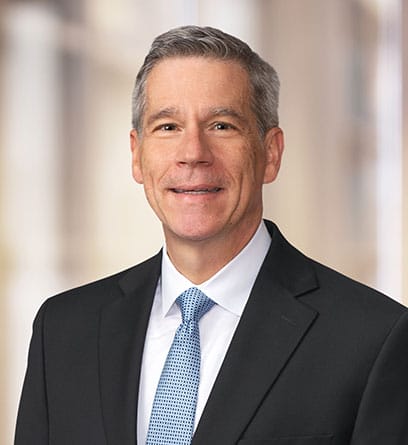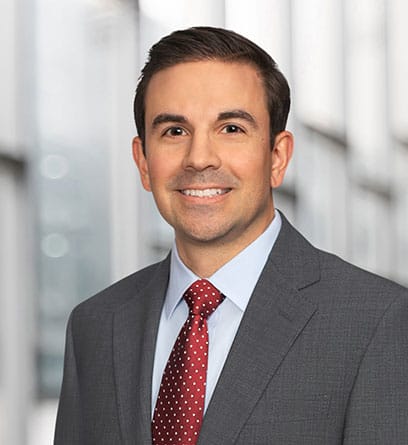Since the 2017 amendment of Missouri’s expert witness statute, § 490.065, RSMo., which adopted the same language as Federal Rule of Evidence 702, Missouri law applying the amended statute has continued to develop—albeit somewhat slowly and with a limited number of appellate court opinions directly addressing the exclusion of expert testimony.1 Recently, the Missouri Court of Appeals, Eastern District, issued an opinion that provides additional guidance under the amended statute. Specifically, in Huett v. Branson, — S.W.3d —-, 2023 WL 4566209 (Mo. App. E.D. July 18, 2023),2 the Court of Appeals reversed a defense verdict in a medical malpractice case, holding that an expert’s opinion should have been excluded by the trial court because (1) the expert lacked qualifications to give the opinion, and (2) the opinion was not based on sufficient facts and failed to reliably apply the expert’s methodology to the facts of the case.
In Huett, the plaintiff alleged a medical malpractice claim stemming from injuries sustained by her infant son during delivery after his shoulder became stuck behind his mother’s pubic bone—an emergency condition called shoulder dystocia. After delivery, it was discovered that the birth process had damaged his right brachial plexus—the nerve group which governs movement and feeling in the arm. The mother claimed that the doctor’s mismanagement of the delivery caused her son’s shoulder dystocia and paralysis to his arm. The defendants posited that maternal forces (i.e., contractions and pushing) during labor were the primary cause of the injury.
To support their alternative causation theory, the defendants presented the testimony of a biomechanical expert who provided the following opinions: (1) based on a computer simulation, maternal forces alone can cause permanent injury to the brachial plexus during a shoulder dystocia in a certain portion of the infant population (the “general causation” opinion); and (2) the plaintiff’s son was within with portion of infants susceptible to permanent brachial plexus injury and his injury was caused primarily by maternal forces with some contribution from the gentle axial traction applied by the doctor (the “specific causation” opinion). See Opinion, at *5.
After a defense verdict, the plaintiff appealed. Although finding that the expert’s general causation opinion was admissible, the Court of Appeals held that the trial court abused its discretion in admitting the specific causation opinion.
Huett is noteworthy for a few reasons. First, although the Court of Appeals reviews the exclusion or admission of expert testimony for abuse of discretion—a standard that is deferential to the trial court—Huett serves as a good reminder that the Court of Appeals will scrutinize the trial court’s required “gatekeeping” role and determination on the admissibility of expert testimony under § 490.065.2. 3 Second, the Court of Appeals—although acknowledging that because § 490.065.2 adopts the Federal Rules of Evidence, federal precedent construing those rules is “strong persuasive authority” in Missouri—relied very little on federal authority and did not engage in any sort of Daubert reliability analysis. Rather, the Huett opinion focuses more on the requirements for expert testimony as found in the language of the statute. In this respect, Huett provides the following takeaways:
1. An expert’s qualifications to provide an opinion must be rooted in the expert’s knowledge, skill, experience, training, or education related to that opinion.
The Court of Appeals declined to adopt any sort of “blanket” or “categorical” rule regarding the extent to which a biomechanical engineer is qualified to address medical-related issues. Opinion, at *6-7. Instead, the question is simply whether the expert is qualified by “knowledge, skill, experience, training, or education” to give an opinion. Id. (quoting § 490.065.2(1)). In Huett, that meant different conclusions regarding the expert’s qualifications to provide her opinion on general causation versus specific causation.
a. Biomechanical engineers are generally qualified to testify about the effects of forces on the body, especially when the engineer has researched and studied the nature of the forces at issue.
The appellate court recognized that “biomechanical engineers may be qualified to testify about the forces on a body.” Opinion, at *6. As explained by the Court, the expert here had the requisite qualifications to provide her general causation opinion because of “the knowledge and education she gained researching and studying this precise issue for over two decades.” Id. The Court explained that the expert’s “extensive study and modeling of the forces involved in shoulder dystocia” qualified her to address that issue in the context of general causation. Id.
b. Biomechanical engineers are not qualified to testify regarding medical-related issues that are outside their knowledge, skill, experience, training, or education.
The appellate court did not entirely rule out the possibility that a biomechanic—if qualified by knowledge, skill, experience, training, or education—could address medical-related issues. In Huett, however, the expert’s biomechanical background “did not include identifying which infants have the type of tissue variations that make them more susceptible to brachial plexus injury.” Opinion, at *7. Nor did “[b]eing told by a colleague that an obstetrics maneuver is typical … give [the expert] the requisite degree of expertise needed” to testify about the standard traction used during deliveries. Id. Because the expert lacked the qualifications to provide her specific causation opinion, that opinion should have been excluded at trial.
2. The fact that an injury occurred is not a substitute for reliable methodology to support a causation opinion.
The Court of Appeals found that the expert’s specific causation opinion that the plaintiff’s son “was more susceptible to brachial plexus injury was based solely on the fact that he incurred that injury.” Opinion, at *8. The appellate court held that this “circular reasoning” was not a reliable methodology and did not utilize any methodology at all. Id.
3. Expert opinions that ignore the underlying facts in a case are speculative and unreliable; there must be a “rational basis” for an opinion.
The appellate court also determined that the expert’s specific causation opinion was inadmissible because it “was not based on sufficient facts and data about this particular delivery and because she did not reliably apply her computer program [methodology] to the particular facts of the case[.]” Opinion, at *8. She lacked facts necessary to support her opinions, including: (1) the size or shape of the plaintiff’s pelvis, and (2) the amount of maternal forces involved in the delivery. The Court of Appeals found that the expert guessed regarding those facts without specifically confirming the numbers she used—“[w]ithout any facts about this mother and this baby and this delivery, [the expert] could only speculate that the situation here was comparable to the one in her computer simulation.” Id. (emphasis added). The Court of Appeals concluded:
[T]he complete lack of information regarding the key elements of the situation results in an opinion that is substantially the product of assumptions and conjecture. [The expert] had no rational basis for concluding that the same outcome produced in her computer simulation also occurred here.
Id. (emphasis added).
Going forward, it will be interesting to see how Missouri courts and litigants use and reference Huett. Thompson Coburn’s product liability attorneys continue to monitor the developments in Missouri law under amended § 490.065.
Ben Harner, Carl Pesce and Paul Hess are members Thompson Coburn’s Product Liability practice group.
[1] Two opinions that have affirmed the exclusion of expert testimony are Gebhardt v. American Honda Motor Co., Inc., 627 S.W.3d 37, 44 (Mo. App. W.D. 2021) (excluding expert based on lack of reliability), and A.J.C. by and through J.D.C. v. K.R.H., 602 S.W.3d 857 (Mo. App. W.D. 2020) (excluding expert based on lack of qualifications).
[2] As of the date of this writing, the Huett opinion has not been released for publication in the permanent law reports. It is subject to a pending motion for rehearing or transfer (filed August 2, 2023) and may be modified, superseded, or withdrawn. Page cites provided herein are to the Westlaw citation.
[3] The Huett opinion did not specifically refer to the trial court as “gatekeeper,” but other Missouri appellate opinions, consistent with federal precedent, have used that terminology in first assessing the admissibility of expert testimony. See, e.g., Gebhardt, 627 S.W.3d at 44; Ingham v. Johnson & Johnson, 608 S.W.3d 663, 700 (Mo. App. E.D. 2020).
- Two opinions that have affirmed the exclusion of expert testimony are Gebhardt v. American Honda Motor Co., Inc., 627 S.W.3d 37, 44 (Mo. App. W.D. 2021) (excluding expert based on lack of reliability), and A.J.C. by and through J.D.C. v. K.R.H., 602 S.W.3d 857 (Mo. App. W.D. 2020) (excluding expert based on lack of qualifications). ↩︎
- As of the date of this writing, the Huett opinion has not been released for publication in the permanent law reports. It is subject to a pending motion for rehearing or transfer (filed August 2, 2023) and may be modified, superseded, or withdrawn. Page cites provided herein are to the Westlaw citation. ↩︎
- The Huett opinion did not specifically refer to the trial court as “gatekeeper,” but other Missouri appellate opinions, consistent with federal precedent, have used that terminology in first assessing the admissibility of expert testimony. See, e.g., Gebhardt, 627 S.W.3d at 44; Ingham v. Johnson & Johnson, 608 S.W.3d 663, 700 (Mo. App. E.D. 2020). ↩︎


